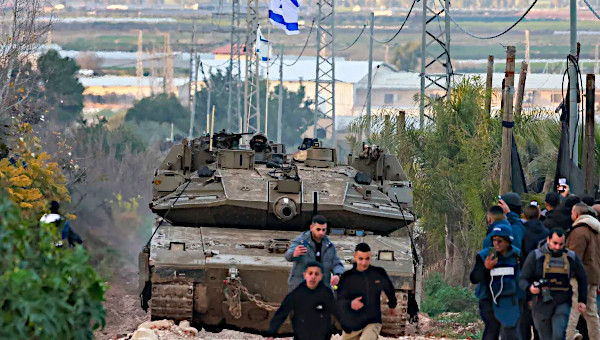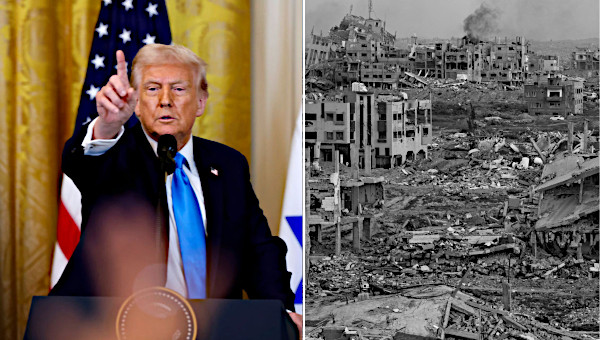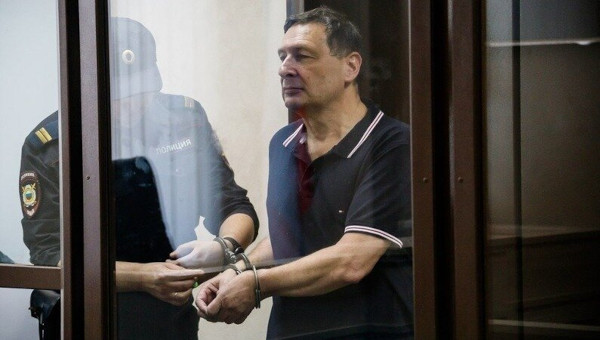Solidarity with Palestine
Crisis Responses and Movement Building
As the number of deaths from Israel’s carnage in Gaza mounts, more and more people in Canada are being moved to take action. Of course, the question quickly becomes: “What can I do?” Among the countless petitions, creative actions, protests, media alerts, letter writing campaigns, public statements and fundraising drives, how can we make the biggest collective impact on Israeli policies as people living in Canada? How can we build a movement that respects all of our different experiences, backgrounds, perspectives and understandings and at the same time effectively responds to Palestinian calls for solidarity?
Each contribution to stop the killing immediately helps, but as Naomi Klein has recently pointed out in The Nation magazine, there’s a way of focusing our energies on a campaign that comes directly from Palestine and that directly addresses Israel’s ability to kill with impunity. The fact is that Palestinian students, workers, women’s organizations, doctors, professors, teachers, refugees, environmentalists, peasant’s groups, and others have already told us what they want us to do: launch boycott, divestment and sanctions (BDS) campaigns against any aspect of Israel’s apartheid system.
Thinking About the Day After the Ceasefire
Effectively opposing the carnage in Gaza then means not only calling for a ceasefire or a halt to the bombing. A “ceasefire,” though important to prevent the killing, would still only restore (and potentially worsen) the every-day apartheid reality separating Israelis and Palestinians. A “ceasefire” that provides only guarantees of Israeli security, but doesn’t lift the siege on Gaza, or that fails to ensure that those responsible for the war-crimes committed by Israel are brought to justice, would only reward the Israeli military for its on-going violations of international law. It would tell Israel that it’s okay to resume the current level of mass killing anytime in the future.
When the current fighting stops, Palestinian refugees – kicked out of their homes in 1948 and now numbering over 5-million – will still be denied the right to return to their homes. After the current fighting stops, Palestinians who have “citizenship” in Israel, will still continue to live as second-class citizens in their own country. They will still be legally prevented from owning land or living in large areas of Israel, marrying who they want, or even enjoying the same citizenship rights and privileges as Jewish Israelis. After the current fighting stops, Palestinians living in the Gaza Strip and the West Bank will continue facing a brutal military occupation, including arbitrary arrests, torture, killings, detentions, various forms of collective punishment, etc.
The struggle against Israeli apartheid is, therefore, a long-term struggle. If we want to support the Palestinian struggle against this racist regime, we need to commit ourselves to building a Palestine solidarity movement that effectively challenges Israel’s apartheid system and that effectively responds to what Palestinians are telling us they expect from supporters. By isolating apartheid Israel, including Israeli government officials, institutions and companies that benefit from the current situation, Israel and its supporters will be given a strong message that violations of basic Palestinian rights will not be tolerated.
No grassroots actions in solidarity with Palestine have worried the Israeli government and its supporters over the years as has the BDS campaign launched by over 170 Palestinian organizations in the summer of 2005. In fact, the Israeli government struck up a high level committee specifically to combat the global “threat” of a solidarity movement opposed to its institutionalized system of racist privilege and domination over indigenous Palestinians. Currently supporters of Israeli policies are working furiously to suppress the 5th annual Israel Apartheid Week on campuses across Canada – though the event will be taking place on campuses across four continents this coming March 2009. Diplomatically, Israeli policy makers are trying furiously to discredit the Durban Review Conference on Racism that is likely to condemn Israel’s racist laws.
Unfortunately, for Israel and its supporters, the BDS movement has already reached the UN General Assembly, with the president of this body, Father Miguel D’Escoto Brockman, calling on civil society to support this campaign as the only moral way forward in ensuring Palestinian rights and dealing with Israeli violations: “More than twenty years ago we in the United Nations took the lead from civil society when we agreed that sanctions were required to provide a nonviolent means of pressuring South Africa to end its violations. Today, perhaps we in the United Nations should consider following the lead of a new generation of civil society, who are calling for a similar non-violent campaign of boycott, divestment and sanctions to pressure Israel to end its violations.”
What about the Canadian Government?
Many of us are probably really frustrated that the Canadian government, with some power to affect the situation, refuses to hold Israel to account. In fact, as it did during the Lebanon war in the summer of 2006, Ottawa is actively supporting Israel’s assault. Canadian companies like Nortel and Bombardier, and smaller military companies like Frontline Robotics and MDA, are all working directly with the Israeli military. Israeli owned firms in Canada like Senstar, a subsidiary of Magal Systems, help outfit Canadian prisons while also developing, testing and producing the surveillance technologies used along Israel’s apartheid wall. Mawashi Corp. in Quebec helps develop body armor used by the Israeli Border Police and Army in suppressing Palestinian demonstrations. The majority shareholders of Chapters/Indigo bookstores fund the Heseg Foundation, which gives scholarships to “lone soldiers” to stay in Israel after doing their military service.
Canada also has a free trade agreement with Israel, exchanging over a billion dollars each year with that state in addition to the billions of dollars in direct two-way investments. In 2008, Canada signed a “public security” agreement that commits it to cooperate with Israel on a number of “public safety” issues, although what this entails is hard to specify as there has been virtually no Parliamentary, public or media oversight of the agreement. The benefits of these commercial, military and security links reach only a few people and companies in Canada and Israel. On the other side of these agreements, beyond the glossy investment brochures, countless Palestinians, First Nations people, Afghans, and other racialized groups targeted by both states simply are confronted with newer and more “creative” ways of being killed, of having their lands taken and resources plundered.
Afterall, perhaps we shouldn’t be so surprised that Canada refuses to recognize the rights of indigenous Palestinians, when it continues to deny the sovereign rights of indigenous peoples here. In fact, Lawrence Cannon, Canada’s current pro-Israeli Foreign Minister, sharpened his teeth in negotiating with other nations when as an MP he helped spearhead repression against the Algonquins of Barriere Lake. Settler-states are like “peas in a pod” and those of us living here and concerned with Palestinian human rights need to be moved to ensure that Canada also respects those same rights when it comes to First Nations struggles for land and self-determination. The movement to boycott and disrupt the 2010 Vancouver Olympics is based on those same principles.
Feeling the Impact of BDS,
Israel Tries to Rebrand Itself
Israel has tried to “rebrand” its image as a highly militarized and racist society in response to the growth of BDS campaigns in recent years. It has done so by trying to portray itself as a hub of innovation and high-tech, telling the world effectively: “You can’t afford to boycott us!” However, these innovations rely on Israel’s control of Palestinian land, theft of Palestinian resources and suppression of Palestinian rights. Recently the Israeli consulate in Toronto launched a $1-million rebranding campaign to fight off the boycotts by focusing on Israeli contributions to science and technology.
Many of these innovations come from the Israeli state’s support for research and development in the military field. Even medical innovations championed in the campaign emerge from an Israeli health system that disproportionately underfunds health care for Palestinian citizens of Israel, a network of research institutes and universities that are complicit in maintaining Israeli apartheid and that actively cooperate in blocking Palestinian researchers from the occupied territories from exercising their academic freedom.
Certainly there’s a better way of “innovating” and “testing” new technologies than through the repression of another people. Such “innovations” and “achievements” shouldn’t be celebrated. Instead they need to be condemned and boycotted. Interestingly, the white minority regime in South Africa attempted to whitewash its record in the face of a growing BDS campaign in the 1980s through a similar marketing effort that celebrated its supposed “achievements” in science, technology and tourism. The Israeli effort, just as the South African rebranding campaign, is bound to fail so long as Israel’s discriminatory policies don’t change.
Confronting Global Apartheid:
The Support System for Israeli Apartheid
In South Africa, during the 1970s and 1980s, when Western governments were encouraging “constructive” engagement with the racist white minority regime there, thousands of ordinary people across the world took creative actions to isolate it and companies that did business there. The BDS movement was an important part of the effort to defeat South African apartheid. It was a tool used to educate people outside of South Africa on the situation inside the country and a concrete way of providing support to the real struggles of indigenous South Africans against white supremacy.
Apartheid was in the end defeated by the incredible sacrifices of Black South Africans and of liberation fighters in the surrounding countries. The support from the outside helped change the tone of the international response, making it increasingly harder for governments advocating “constructive engagement” with racists to maintain this position. Unfortunately, in today’s South Africa, apartheid continues in many ways in privatized form. Like across much of the world today, South Africans continue to be divided by gated communities, razor wires, surveillance cameras and heavy-handed “security” measures designed to keep the privileged (largely white) few feel “safe” in their islands of luxury and separate (“apart”) from racialized majorities cramped into increasingly smaller and more heavily policed urban spaces. This is the neoliberal world that has grown from centuries of free-market capitalism built on the foundations of slavery and colonialism.
The struggle against global apartheid and its local manifestations therefore continues. And it is this context that also needs to be confronted if we are to effectively challenge the support system for Israeli apartheid. BDS has been a tool in the arsenal of activists and community organizers to isolate racist regimes when governments fail to do so. It is certainly not a substitute for the broader struggle against racism, classism and sexism in the world and in our own societies. In the case of Palestine, it is meant as a specific strategy that is being pushed as part of a direct call from Palestine for a specific call for solidarity. If we are committed to a long-term struggle against the system of Israeli apartheid that allows things like the current massacre in Gaza to occur, the BDS call from Palestine will be an important way of connecting our various attempts to put an end to this racist regime. It will also help build broader struggles against a highly unequal and racially stratified world order.
Moving Forward After the Ceasefire:
Ending the Siege, Freeing Palestine
People and groups wanting to stand in solidarity with Palestine during the current crisis should therefore be careful not to simply fall into the trap of only reacting to the latest crisis. We need to work instead toward building a movement that can effectively challenge Israeli apartheid over the long-term. Part of this strategy is lifting the siege on Gaza, another part is imposing BDS on Israel until it recognizes fundamental Palestinian human rights.
These rights are spelled out by Palestinian organizations spearheading the BDS campaign, they include: the right of Palestinian refugees to return to their homes; the right of Palestinians living in Israel to be treated as equals; and the rights of all Palestinians living under foreign military occupation to be free of the racism, fear, repression and the impunity that are all necessary for Israel to maintain its racist foundations. Calling for an end to occupation, while important, only means we’re standing in solidarity with a portion of the Palestinian people. It does nothing to back the struggles and demands of Palestinians living in refugee camps or as nominal “citizens” in an Israeli state that refuses to acknowledge fundamental Palestinian rights.
Along these lines it is necessary not to counterpose our immediate, short-term demands with the longer-term strategy of BDS. Rather BDS provides a tool or mechanism through which to win these demands. For example, it makes little sense to raise a demand like “Lift the Siege of Gaza” without a concrete strategy to make this happen. The best and most effective strategy – as the experience of the Palestine solidarity movement has shown over the last few years – is to concretely cut ties with Israel apartheid in spaces where we have influence.
Every step taken toward isolating Israel for its violations of Palestinian rights, even if symbolic, makes it more likely to win short-term demands such as lifting the siege on Gaza. BDS, in other words, is not a demand. It is rather, a course of action designed to ensure that demands are met. Over the long-term the collective impact of pushing these demands through an effective strategy of BDS will ensure that the broad and inclusive vision of justice that Palestinian social movements continue to struggle for. To maximize its impacts those wishing to stand in solidarity with Palestinians should coordinate their actions with the organizations in Palestine that are spearheading this campaign.
As the crisis in Gaza continues any form of opposition is helpful. Everything from direct action, staying visible on the streets, occupying consulates, constituency offices, etc. needs to continue. Fundraising, teach-ins, etc. education, grassroots media work, etc. are all important for those moved in solidarity with Palestine. Each action has the potential to help. However, to magnify the impact of our grassroots individual or group actions, to ensure that after a successful event or action we don’t go home and feel defeated by the latest news on our TV screens or inboxes, it is important to find ways of plugging into an already existing global solidarity movement that is responding directly to the BDS call from Palestine. •
In order to find out more about this campaign please visit some of the following websites:
- Global BDS Movement www.bdsmovement.net
- Stop the Wall Campaign www.stopthewall.org
- Palestinian Campaign for the Academic and Cultural Boycott of Israel (PACBI) www.pacbi.org
- BADIL – Resource Center for Palestinian Residency and Refugee Rights www.badil.org
- Ittijah – www.ittijah.org
- Coalition Against Israeli Apartheid www.caiaweb.org
- Tadamon! www.tadamon.ca
- Solidarity for Palestinian Human Rights sphr.org
- Palestine Solidarity Campaign (UK) www.palestinecampaign.org
- U.S. Campaign to End the Occupation www.endtheoccupation.org
Letter from CUPW – on the Middle East Crisis
Canadian Union of Postal Workers (CUPW) letter to Prime Minister Stephen Harper – in English and in French.





